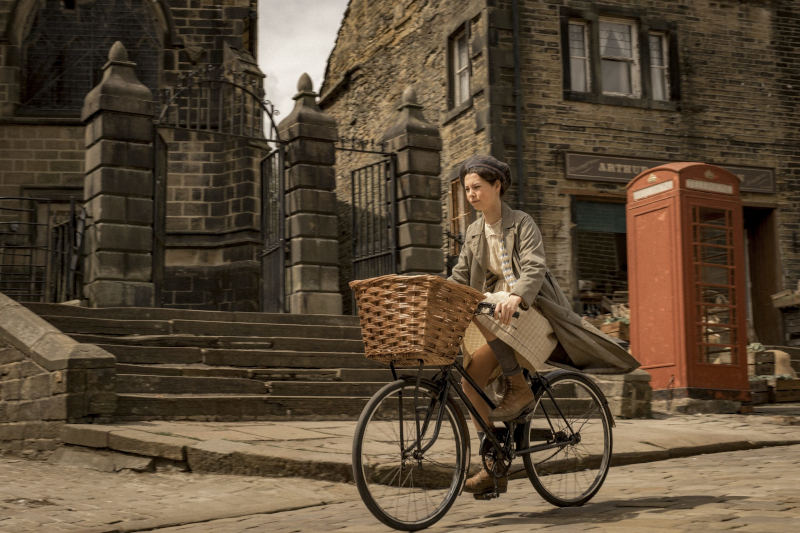Director – Morgan Matthews – 2022 – UK – Cert. PG – 98m
***1/2
Almost four decades after the events in The Railway Children, three siblings are evacuated from the wartime bombing raids of Salford to the safer Yorkshire countryside– out in cinemas on Friday, July 15th
In 1944, with Britain at war and German bombing intensifying, children are being evacuated from the cities to the countryside, leaving their parents to live with substitute parents and / or families for the duration. Thus, in Salford, their mother puts Lily (Beau Gadsdon), Angela (Jessica Baglow) and Ted (Zac Cudby) on a train to the small country town of Oakworth in Yorkshire. Arriving with many other children, they wait to be assigned to a family.
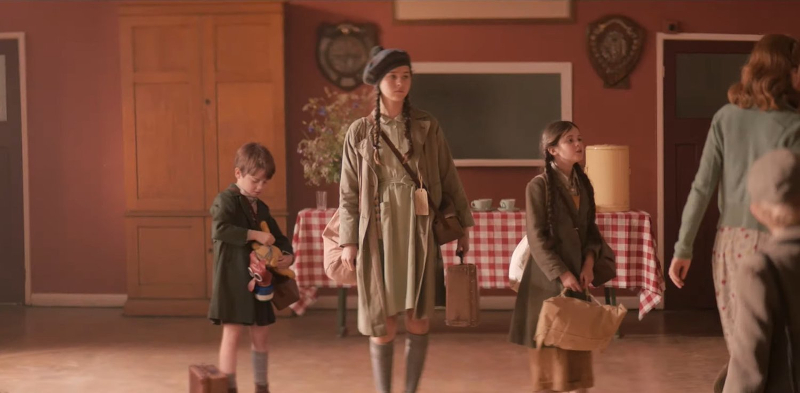
However, because there are three of them – and possibly also because Angela has got rid of the smart dress that her mother made her wear for a more comfortable outfit – no family is forthcoming. So grandmother Bobbie (Jenny Agutter, reprising her role from The Railway Children, Lionel Jeffries, 1970) persuades her daughter Annie (Sheridan Smith), the local headmistress, to take the trio even though the latter isn’t sure they can manage three, and the three children move in to their new home, The Three Chimneys.
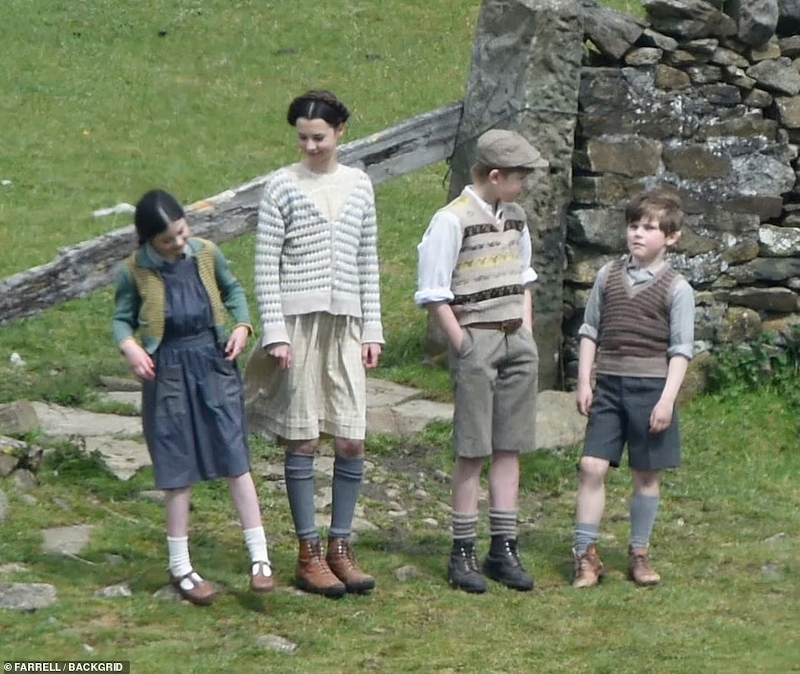
Despite a degree of urban / rural rivalry, the three get on well with Annie’s son Thomas (Austin Haynes). With most men away fighting the war, all four children are experiencing childhood with an absent father which is clearly something they have in common. Other local prove more hostile, however, with a gang led by George (Joseph Richards) firing pellets at the newcomers and shouting that they aren’t welcome in the village. Lily takes it upon herself to sort George out.
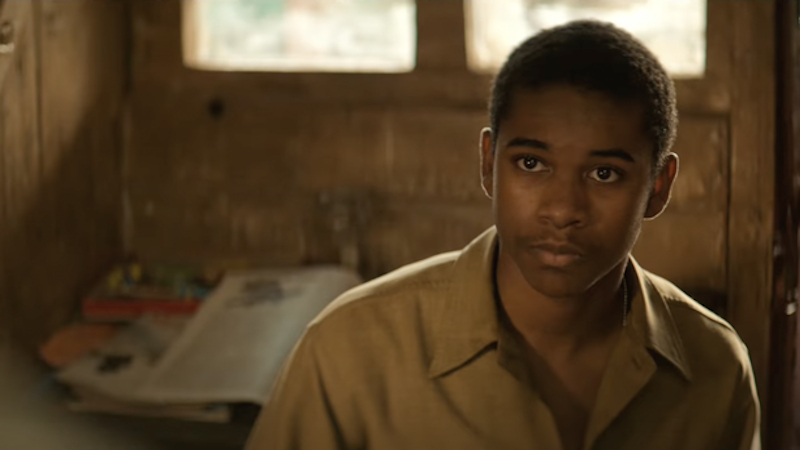
Thomas proudly shows the siblings his hideout in an out-of-use train guard’s van from where he watches for suspicious enemy activity. Later, as the four play hide and seek, Angela discovers a young soldier sleeping there she presumes to be a German. When Lily meets him, she discovers him to be Abe (Kenneth Aikens), a US solider wounded in the knee who claims to be on a secret mission and asks her not to tell anyone about him. That night, Lily is taking Abe supplies (including a first aid kit) stolen from her new home when she is nearly killed by an enemy bomb, dropped as a leftover from an urban raid. As she recovers from the shock, Abe looks after her (with no suggestion of impropriety).
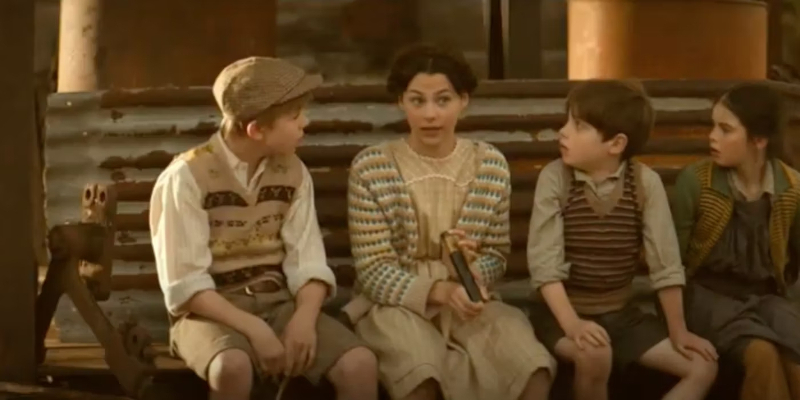
The African-American Abe turns out to have deserted following his racist treatment by the locally stationed, white, US Military Police (a situation based on the real life Battle Of Bamber Bridge). So Lily helps him board a train to Liverpool where he tells her he intends to rejoin his unit, but while the pair are on the train everything goes horribly wrong…
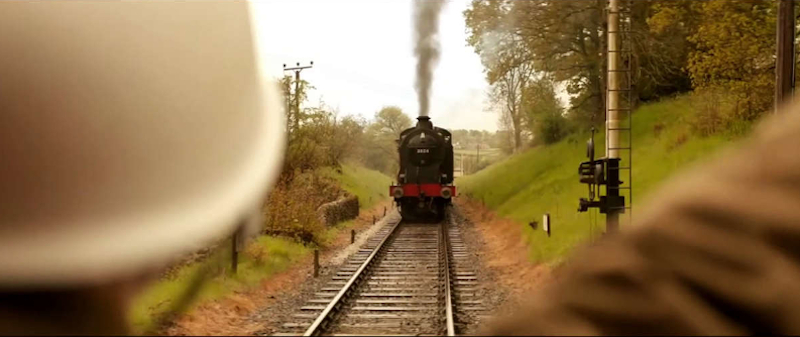
E. Nesbit’s book The Railway Children, set in 1905, has been filmed several times, most notably as the BBC TV series of 1968 and Lionel Jeffries’ 1970 cinema film, both of which starred Jenny Agutter as the eldest of three children sent from the city to Oakworth in Yorkshire. What is arguably the 1968 and 1970 version’s most memorable sequence has the children stand on train tracks waving red flags to stop an oncoming train and prevent an accident after a tree falls on the line ahead. The current sequel has Agutter reprise her iconic role almost 40 years on, now a grown woman with a daughter and grandchild. Child war evacuees provide the perfect reason for city kids to be sent to Oakworth, which means if your memory of the first film is poor, it almost feels like a rerun. However, despite certain recurring elements, it’s basically a completely different narrative.
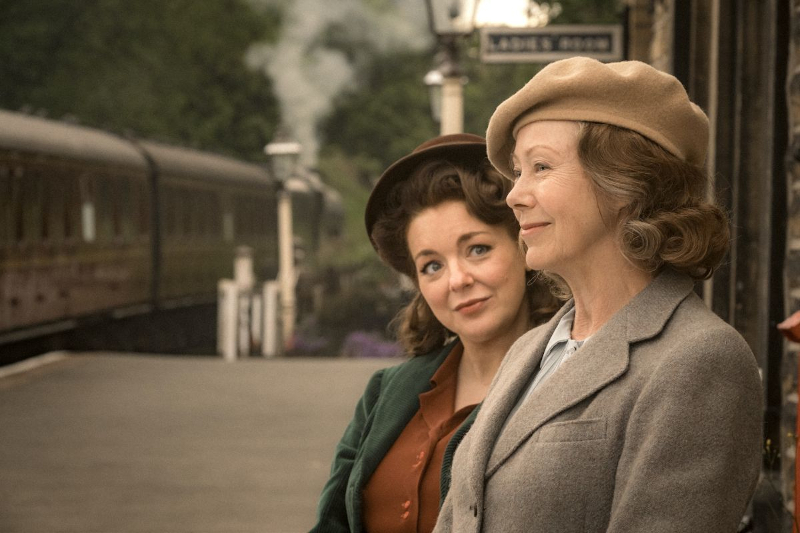
Although the story is about the children, the adult characters (including the iconic Agutter, Tom Courtenay as a genial uncle and John Bradley as the stationmaster) are integral. We see Annie both in not only her family role as both mother and daughter but also her work role as headmistress, although curiously the tension between these two roles this must cause the four kids, who all attend the same school, is never touched upon.
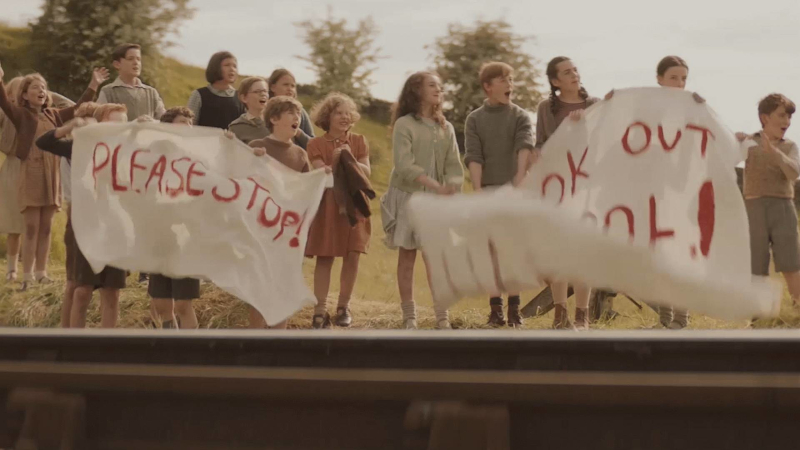
The bulk of the onscreen time, however, goes to the child actors, all of whom give solid, reliable performances. You absolutely believe the three siblings are siblings, which could so easily not have been the case had the casting not been right. The trains of the Keighley and Worth Valley Railway, which played a major role in the original film, do so again here, but are sparingly used so that the film never feels over-reliant on them. The ending which involves all the local kids coming together for a common purpose will strike a chord to anyone familiar with classic Ealing comedy Hue & Cry (Charles Crichton, 1947). The whole thing is much slower paced and less rapid-fire than most Hollywood family films these days – and there’s nothing whatsoever wrong with that.
The Railway Children Return is out in cinemas in the UK on Friday, July 15th.
Trailer:
